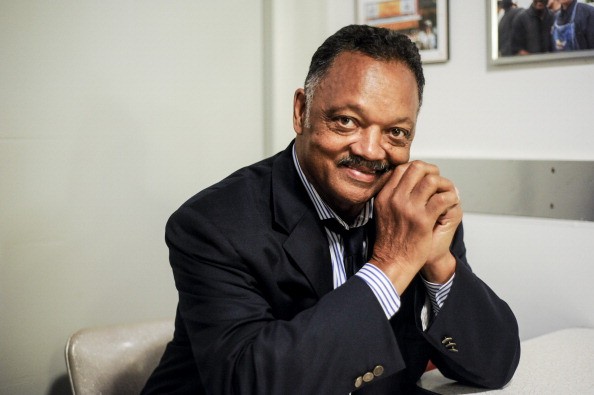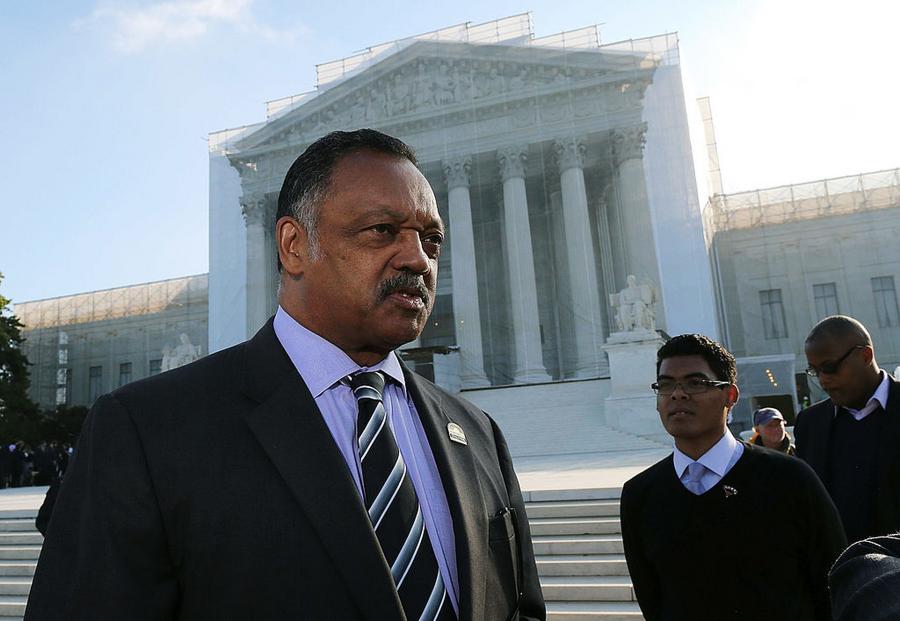What is Jesse Jackson's Net Worth and Salary?
Jesse Jackson is an American civil rights leader, Baptist minister, and political activist who has a net worth of $4 million. A protégé of Dr. Martin Luther King Jr., Jesse Jackson rose to national prominence in the 1960s as one of the most visible figures of the civil rights movement. He worked alongside King in the Southern Christian Leadership Conference (SCLC) and later founded his own organizations—the Operation PUSH (People United to Save Humanity) in 1971 and the National Rainbow Coalition in 1984—to promote economic empowerment and political representation for African Americans and other marginalized communities.
Jackson became a powerful voice for progressive causes, pushing for voting rights, education, and fair employment, while also using his platform to mediate conflicts and promote diplomacy abroad. His charisma and oratorical skill helped make him a unifying figure across generations of activists. In 1984 and 1988, he ran for the Democratic presidential nomination, becoming the first African American candidate to mount a serious campaign for the office. His 1988 campaign, in particular, made history by winning several primaries and helping to expand the Democratic Party's base to include more Black, Latino, and working-class voters.
Throughout his career, Jackson served as an unofficial ambassador and humanitarian, negotiating the release of hostages and political prisoners in Syria, Cuba, and Iraq. His work earned him global recognition, including the Presidential Medal of Freedom in 2000. Despite facing criticism and controversy at times, Jackson's impact on American politics and civil rights remains profound. Through his leadership, he helped pave the way for future generations of Black politicians and activists, and his enduring message of inclusion, equality, and empowerment continues to influence social justice movements today.
Financial Disclosures
According to a Chicago Tribune investigation in 1987, Jesse's wife Jacqueline held the majority of the family's assets in her name. According to the article, at that time, the family owned assets valued at $400-600,000. After adjusting for inflation, that's the same as around $1.2 – $1.7 million in today's dollars. In March 2001, Jesse submitted a personal financial disclosure, which showed he was receiving a total of $120,000 per year in salary at that time from the four organizations he controlled. He was also receiving $5,000 per week in salary from CNN for his show "Both Sides with Jesse Jackson." The disclosure further revealed that his organizations spent $614,000 on travel for Jesse in the previous year, but was also reimbursed $450,000 by the Democratic National Committee a spart of a "get out the vote" effort.
Early Life
Jesse Louis Jackson Sr. was born on October 8, 1941, in Greenville, South Carolina. His mother, 16-year-old Helen Burns, became pregnant by her 33-year-old married neighbor, Noah Louis Robinson. The year after Jesse's birth, Helen married Charles Henry Jackson, a kind and supportive man who adopted Jesse and gave him his surname. Jackson maintained relationships with both his biological father and stepfather, later saying that each shaped his understanding of responsibility and identity.
Growing up in the segregated South, Jackson experienced firsthand the injustices of Jim Crow laws, which prohibited Black residents from accessing many public spaces and opportunities. His early encounters with racial inequality and exclusion left a lasting impression, fueling his determination to fight for social justice and civil rights.
Education
Jackson attended Sterling High School, a segregated school for Black students in Greenville. A gifted athlete and natural leader, he excelled in academics and sports, graduating tenth in his class while serving as student body president and lettering in football, basketball, and baseball. In 1959, he accepted a football scholarship to the University of Illinois, turning down an offer from a minor-league baseball team.
Although he performed well academically, Jackson felt isolated at the predominantly white university and transferred after two semesters to North Carolina A&T State University, a historically Black college in Greensboro. At A&T, he thrived both on and off the field—playing quarterback, leading student government, and taking part in sit-ins and protests against segregation at local lunch counters.
After earning a bachelor's degree in sociology in 1964, Jackson received a scholarship to attend the Chicago Theological Seminary, where he planned to pursue a Master of Divinity degree. However, by 1966, he left the program to devote himself full-time to the growing civil rights movement. Decades later, in 2000, the seminary awarded him his degree in recognition of his academic work and his lifelong dedication to ministry and activism.

Kris Connor/Getty Images
Civil Rights Activism
Jackson's activism began long before he became a national figure. In 1960, he was part of the "Greenville Eight," a group of Black students who staged a sit-in at the whites-only Greenville Public Library. Their peaceful protest led to their arrest for "disorderly conduct," but the demonstration helped challenge racial segregation in South Carolina and set the tone for Jackson's lifelong commitment to direct action.
By the mid-1960s, Jackson had joined the Southern Christian Leadership Conference (SCLC), where he worked closely with Dr. Martin Luther King Jr. King recognized Jackson's charisma and leadership skills, tasking him with establishing and leading the Chicago branch of Operation Breadbasket, the SCLC's economic empowerment initiative. Under Jackson's leadership, Operation Breadbasket pressured major corporations to hire and promote Black employees, buy from Black-owned businesses, and invest in minority communities.
In 1971, after internal disagreements within the SCLC, Jackson broke away to found his own organization—Operation PUSH (People United to Save Humanity). Through PUSH, he focused on education, employment, and social uplift in Black communities. One of his signature initiatives, the PUSH-Excel program, encouraged students to commit to academic excellence and community involvement. In 1984, he expanded his work by launching the National Rainbow Coalition, a political organization designed to unite marginalized groups—including African Americans, Latinos, labor unions, and poor whites—into a broader movement for social and economic justice.

(Photo by Mark Wilson/Getty Images)
Political Career
Jackson entered the national political arena in 1984 when he announced his candidacy for the Democratic presidential nomination. Running against Walter Mondale and Gary Hart, he became only the second African American to mount a serious campaign for a major party's nomination, following Shirley Chisholm in 1972. His campaign emphasized racial equality, healthcare reform, education access, and opposition to military overreach.
He ran again in 1988 with a far more organized and better-funded operation. His "Rainbow Coalition" campaign built an unprecedented multiracial voter base, and after winning 55 percent of the vote in the Michigan Democratic caucus, Jackson briefly emerged as the front-runner for the nomination. Though he ultimately lost to Michael Dukakis, his strong showing marked a turning point in American politics, proving that a Black candidate could compete seriously at the national level.
Following his presidential campaigns, Jackson served as the shadow U.S. senator for the District of Columbia from 1991 to 1997, advocating for D.C. statehood and voting rights. He later became an influential voice within the Democratic Party, supporting Bill Clinton's presidential bid in 1992 and helping mobilize African American voters. He endorsed Barack Obama's historic 2008 campaign, was visibly moved during Obama's victory speech, and later supported Hillary Clinton in 2016 and Bernie Sanders in 2020.
Media and Other Work
Beyond politics, Jackson used television and media to expand his reach. From 1992 to 2000, he hosted CNN's "Both Sides with Jesse Jackson," a weekly program featuring debates and discussions on social, political, and cultural issues. He also continued his humanitarian efforts worldwide, playing a key role in negotiating the release of hostages and political prisoners in Syria, Cuba, and Iraq.
Personal Life
Jackson married Lavinia Brown in December 1962, and together they have five children: Santita, Jesse Jr., Jonathan, Yusef, and Jacqueline. His son Jesse Jackson Jr. served as a U.S. Congressman from Illinois, while Jonathan Jackson was elected to Congress in 2022.
In 2001, it was revealed that Jackson had fathered a daughter, Ashley, with his former staffer Karin Stanford, an affair that briefly overshadowed his public image. He agreed to pay child support and maintained a relationship with his daughter.
In November 2017, Jackson announced that he had been diagnosed with Parkinson's disease, describing it as a new chapter in his lifelong fight for perseverance and purpose. Despite health challenges, he has continued to make public appearances and remains an enduring symbol of the civil rights struggle and moral leadership in America.
/2010/03/Jesse-Jackson.jpg)
/2021/12/mlk.jpg)
/2014/09/Bernie-Sanders.jpg)
/2010/03/GettyImages-911943150.jpg)
/2009/11/Barack-Obama-1.jpg)
/2018/05/Maxine-Waters.jpg)
/2009/09/Cristiano-Ronaldo.jpg)
/2019/04/rr.jpg)
/2020/06/taylor.png)
/2009/11/George-Clooney.jpg)
/2019/10/denzel-washington-1.jpg)
/2009/09/Brad-Pitt.jpg)
/2020/02/Angelina-Jolie.png)
/2020/04/Megan-Fox.jpg)
/2009/09/Jennifer-Aniston.jpg)
/2019/11/GettyImages-1094653148.jpg)
/2017/02/GettyImages-528215436.jpg)
/2010/03/Jesse-Jackson.jpg)
/2010/03/GettyImages-911943150.jpg)
/2021/12/mlk.jpg)
/2014/09/Bernie-Sanders.jpg)
/2020/08/jb-2.jpg)
/2021/12/Alexandria-Ocasio-Cortez.jpg)
/2016/10/kaine.jpg)
/2019/10/jimmy-carter-1.jpg)
:strip_exif()/2009/09/P-Diddy.jpg)
/2020/01/lopez3.jpg)